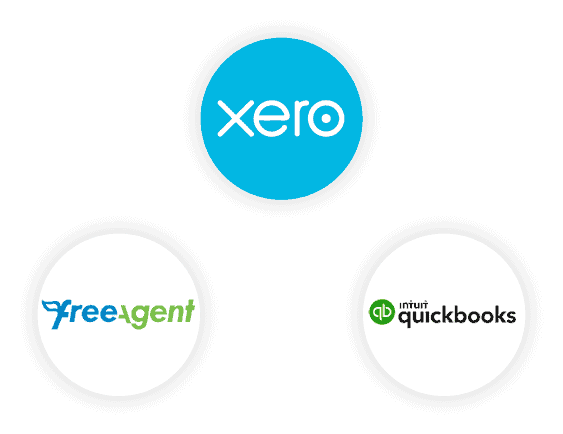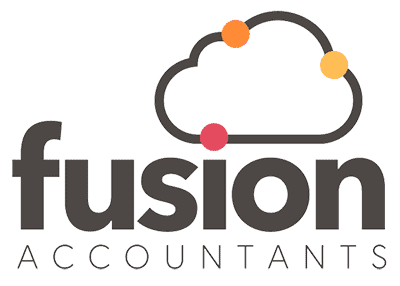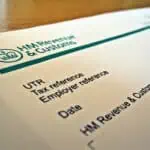10 smart bookkeeping tips for small businesses
Reading Time:
In business, it is essential to keep track of everything you are earning and spending if you want your accounts to balance at the end of the financial year. It may be something you do yourself whilst your small business is getting started, but as you grow, it is helpful to get a professional to take the reins to focus more time on your long-term objectives and goals or set up a limited company.
However, if you decide to manage your bookkeeping, several key points to remember throughout the year will help you manage your day-to-day finances to make sure you are making more money than you are spending, so, in turn, make more significant financial decisions as your business develops.
What does bookkeeping involve?
Bookkeeping refers to tracking all of the general financial transactions your business makes. It includes paying bills, paying employees and contractors, chasing payments from clients, claiming expenses, and ensuring the correct tax is paid at the appropriate time. But, of course, everything now tends to be done digitally rather than recording transactions in books. So, over the past few years, Bookkeeping software has pretty much replaced the need for physical books.
You will typically use three key financial records:
- Cashbook – records your cash flow
- Sales invoice – records what you have sold and covers both paid and unpaid invoices
- Purchase invoice – records what you have bought and how it has been paid for
Here are our 10 tips for smart bookkeeping if you run a small business.
1. Choose an accounting method
Choosing your accounting method will determine how you keep your books moving forward. For example, if you pick traditional accounting, you will need to record sales and purchases invoiced. Cash accounting, meanwhile, requires you to record them at the date the sums of money were paid or received. This latter method appeals to small businesses with a turnover of £85,000 or less, reducing the chance of paying tax on money that has not yet been received. However, businesses turning over more than £85,000 will need to opt for traditional accounting.
2. Best online accounting software for small businesses
Finding a suitable provider that enables you to easily keep track of your income and expenses is key to avoiding financial headaches further down the line. You may begin with Microsoft Excel or a free service, but as your needs develop, you are likely to want software that allows you to carry out various tasks. Again, your accountant will be able to recommend a provider.
Fusion Accountants works with several market-leading online software (EG: Xero, Quickbooks, Freeagent etc.), and we will help you choose the right platform that fits your business perfectly.

3. Keep records of every payment
It sounds obvious, but you should record every payment made or received, so it can be referred to later on. Even the smallest things – such as tea, coffee, and milk – should be documented so that you can balance them accurately when it comes to doing your accounts.
4. Set deadlines
Set strict deadlines not only for your payments to service providers and contractors but also to clients. If they go overdue, you can then chase them before it begins to significantly affect your cash flow. Of course, it is vital to make payments to HMRC on time to avoid facing penalties. If you have a client who consistently makes late payments, you may wish to revise how you invoice them or consider not working with them.
5. Store receipts
Many organisations reduce their overheads by claiming tax on rent on business premises, raw material costs, and office bills. However, you will need to substantiate these costs when completing your Corporation Tax Return, so keep receipts somewhere safe. It also helps to organise them into specific categories, such as employee uniforms and fleet expenses. We suggest you keep business and personal expenses separate – otherwise, sorting through the documentation when the time comes will take up unnecessary time.
6. Keep your accounting books in order
This again seems obvious but filing bank statements, purchase invoices, and sales invoices in date order can save considerable time and effort – particularly if you are paying an external bookkeeper. This is where online bookkeeping software is useful, as lots of things can be automated, such as separating paid and unpaid invoices, chasing payments, and more. Documents can also be auto dated when they are created, meaning everything is listed in date order to keep things simple for your bookkeeper.
7. Report and review
If you do not have the time to regularly check your finances or an employee is doing basic bookkeeping for you, you will want to know where you stand each month. Request a manual report or generate an automated report to be sent each month if you have accounting software. It should include a profit-and-loss statement and the balance sheet at the very least.
At the end of each quarter, make time to review your records in greater detail. Look for trends – perhaps year-on-year sales figures or revenues – to ensure your business is going in the right direction.
8. Monitor employee hours
If your employees are paid for overtime or take a paid holiday, a Cloud-based time tracking system helps you keep an eye on when staff clocks in or out of their computers or tablets. If you choose one that integrates with your bookkeeping software, it makes payroll simpler too.
9. Pay attention to overseas transactions
If you pay a contractor in a foreign currency or take payments from overseas, be sure to record the amount that arrives in your bank account. Exchange rates fluctuate all the time, so do not assume today’s rate is the same as a week ago and then base your records on the invoiced amount with today’s rate.
10. When to outsource your bookkeeping
As your business grows, you may find yourself spending more and more time on bookkeeping. If this is the case, it may be time to outsource to a professional bookkeeper. Putting an expert in charge means they can complete the job more quickly and confidently than you may be able to, and you’re free to focus on running your business. It will also prove better value in the long term, as your time lost to admin reduces, and you can generate more for the business.







